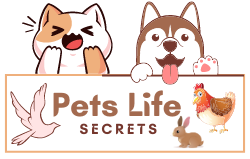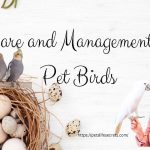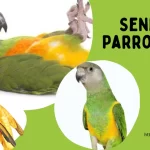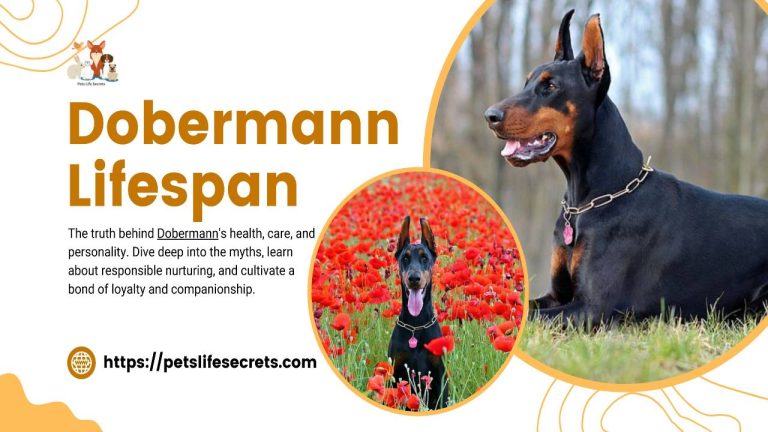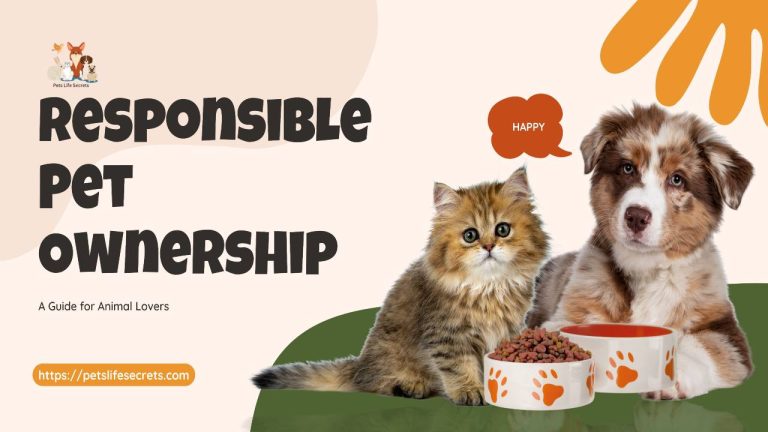Care and Management of Pet Birds, Are you interested in owning a pet bird? Discover the ins and outs of caring for and managing these delightful feathered companions. From building a bond to providing a safe environment, proper nutrition, and maintaining hygiene, this guide covers everything you need to know. Learn how to be a great bird owner and create a happy, healthy life for your pet.
Table of Contents
Care and Management of Pet Birds:
Hey there, fellow bird enthusiasts! Are you considering bringing a delightful feathered friend into your life? Well, let me tell you, owning a pet bird can be an incredibly rewarding experience. But before you dive headfirst into bird ownership, there are a few things you need to know. In this article, we’ll explore the care and management of pet birds, covering everything from understanding their needs to ensuring they live a happy and healthy life. So, let’s spread our wings and get started!
Get to Know Your Bird: Building a Strong Bond
To become the ultimate bird owner, it’s crucial to develop a strong bond with your feathered companion. Take the time to get to know each other through training sessions and playtime. Remember, a birdcage is not a permanent confinement. It’s essential to understand your bird’s behavior in the wild, allowing you to create a suitable and enriching environment in your home. This becomes even more important if you plan on having multiple bird species.
For instance, birds love to play and explore. However, for smaller birds like canaries, it’s better to provide appropriate toys within the cage. Toys can serve as an “entertainment therapy,” encouraging exercise and mental stimulation. You don’t have to break the bank either; a simple three-branch with leaves or even a cardboard roller from a toilet paper can do the trick!
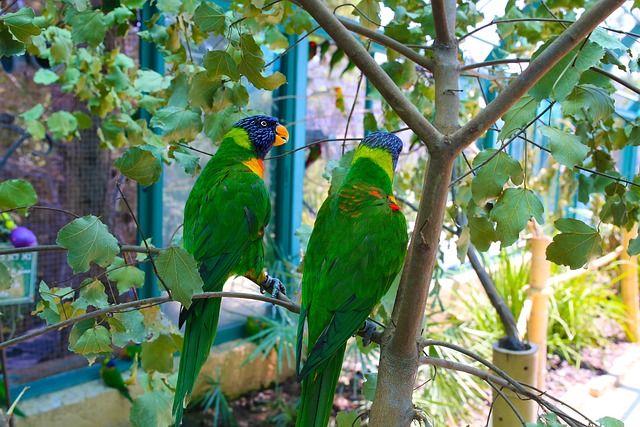
Ensuring Security: Creating a Safe Haven
Care and Management of Pet Birds, If you plan on giving your bird some out-of-cage time, make sure they are well-trained and calm to prevent accidents. Also, be cautious about where you place the birdcage within your home. Avoid areas like the bathroom or kitchen, where your bird may be exposed to chemicals, fluctuating temperatures, and potentially hazardous objects. If you’re thinking of allowing your pet to explore different rooms, take extra care by keeping doors and windows closed and steering clear of ceiling fans. After all, we want to avoid any unexpected mishaps!
If you have other pets, such as cats or dogs, it’s best to introduce them to your feathered friend at an early age. This helps them get accustomed to each other’s presence and reduces the chances of any harm. Especially if your feathered buddy claims they’ve spotted a certain “puddy-tat.” It’s all about fostering a harmonious and safe environment for everyone involved.
The Perfect Bird Cage: Home Sweet Home
Care and Management of Pet Birds, Choosing the right cage for your bird is vital. Factors such as the species, your living space, and your bird’s natural behavior all come into play. Make sure the cage provides enough room for your pet to spread its wings and move around comfortably. Additionally, the cage should be sturdy enough to withstand any attempts at damage by your feisty friend.
When it comes to the cage floor, opt for plain cage liner paper instead of sawdust, sand, or kitty litter. These substances can harbor bacteria and fungi, posing a threat to your bird’s health. To promote exercise, place the water bowl at the opposite end of the food tray. This way, your feathered companion will have to move around and exert some effort to quench its thirst or satisfy its hunger.
Care and Management of Pet Birds, If you have any doubts or concerns about bird cages or housing, consulting with an avian veterinarian or a regular veterinarian is always a great idea. They can provide valuable guidance to ensure your bird feels right at home.
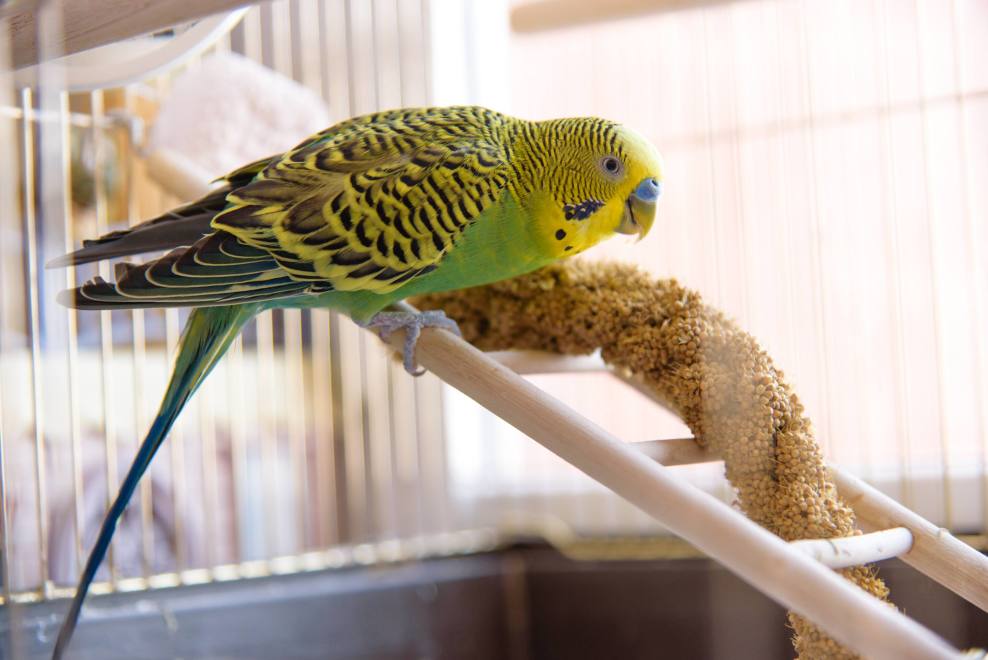
Choosing the Right Nutrition: A Healthy Diet for a Happy Bird
Now, let’s talk about the importance of a balanced diet for your bird. Just like any other animal, proper nutrition is crucial for their overall well-being. In the wild, birds typically feed on various types of seeds. While seeds can be messy, feeding your feathered friend with pellets or commercially formulated diets can simplify mealtime.
Care and Management of Pet Birds, For additional dietary variety, you can incorporate fruits and vegetables as treats or occasional meals. However, the specific amount and type of food will depend on your pet bird’s species. Consulting with a veterinarian will help you determine the ideal diet for your feathered companion. Remember, a well-balanced diet should consist of 75% concentrated food and 25% high-quality, healthy food.
While some owners may prefer homemade bird food, it’s important to note that these diets may not fulfill your bird’s nutritional requirements entirely. Before embarking on the path of homemade meals, seek guidance from a professional or veterinarian. Even the smallest details, like choosing the right bowls for presentation, can make a difference in enticing your bird to eat.
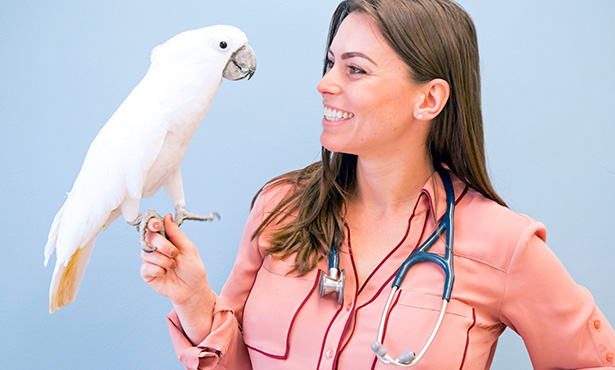
Maintaining Hygiene: A Clean and Healthy Environment
Care and Management of Pet Birds, Owning a pet comes with responsibilities, and cleanliness is one of them. Keeping your bird’s living space clean is essential to prevent infections and maintain the well-being of both your bird and your family members. Just imagine it as maintaining a clean bathroom – it’s necessary for everyone’s health!
Regularly clean the cage to check if your pet is eating correctly and remove any dropped debris from the cage floor. Monitoring your bird’s droppings can also provide valuable insights into their health and behavior. If any concerns arise, your veterinarian will appreciate having this information. Think of it as a teamwork approach to keeping your bird in tip-top shape!
Using separate sets of bowls for water and food ensures that your bird always has a clean dish to eat from. It helps avoid any unpleasant odors or leftover food that may deter your feathered friend from enjoying their meal. Just like you wouldn’t want to eat from unwashed dishes, your bird deserves the same consideration.
Click Here For: How To True Care For Pets : #1 Tips Forever
Becoming an Amazing Pet Bird Owner
Care and Management of Pet Birds, Now, you might be thinking that caring for a pet bird seems like a daunting task, especially if you’re a beginner. But fear not! If you grasp the basics of bird care, you’re well on your way to becoming an exceptional pet bird owner, regardless of the species. To ease your entry into bird ownership, you could start with a smaller bird like a conure or canary, instead of jumping straight into the world of larger parrots like the Amazon parrot.
Cockatiels also make fantastic companions and belong to the wider parrot species, each with their unique and charming personalities. While they may not be the ideal choice for young children due to the care requirements and lifespan, companion parrots can make wonderful additions to any family.
Care and Management of Pet Birds, Remember, each pet bird is unique, so it’s essential to find the one that suits you best. Don’t hesitate to seek advice from an avian veterinarian or fellow bird enthusiasts regarding the specific needs of your chosen bird species. Their expertise will prove invaluable on your journey to becoming the best bird owner you can be.
If you’re in search of pet birds or exploring specific species, here are a few names worth checking out: parrotlet, budgie (also known as a parakeet) for smaller birds, and for parrot species, consider the cockatoo, macaw, or African grey parrot.
Click Here For: Exploring The Delicate Art Of Senegal Parrot Care
So, dear readers, with the knowledge and guidance provided in this article, you’re now equipped to embark on an exciting adventure of pet bird ownership. Remember, it’s all about love, care, and creating a happy, healthy environment for your delightful feathered friends. Enjoy the companionship and cherish every moment with your avian companions!
Frequently Asked Questions about Pet Bird Care and Management
- Q: What are the basic rules for caring for a pet bird?
- A: Basic rules for pet bird care include providing good nutrition, proper care, attention, and love.
- Q: How can I get to know my bird better?
- A: You can build a stronger bond with your bird through training sessions and playtime.
- Q: Should I keep my bird inside the cage all the time?
- A: No, birds should have time outside the cage for exercise and mental stimulation. However, ensure a safe environment and supervise their activities.
- Q: What kind of toys are suitable for small birds like canaries?
- A: Toys that encourage exercise and mental stimulation, such as simple branches with leaves or even cardboard rollers, can be suitable for small birds.
- Q: How can I ensure the security of my bird?
- A: Avoid exposing the birdcage to chemicals, temperature fluctuations, or biohazard objects. Also, be cautious about interactions with other pets and keep doors and windows closed.
- Q: How do I choose the right birdcage?
- A: Consider the species, size, and natural behavior of your bird when selecting a cage. It should provide enough space for movement and be sturdy enough to resist damage.
- Q: What should I feed my pet bird?
- A: A balanced diet is essential. Commercially formulated diets or pellets can be the main food, supplemented with fruits and vegetables as treats or meals. Consult a veterinarian for specific dietary recommendations.
- Q: Can I feed my bird homemade food?
- A: While homemade bird food is an option, it may not meet all of their nutritional needs. Consult with a professional or veterinarian to ensure a well-rounded diet.
- Q: How should I maintain the hygiene of my bird’s living space?
- A: Regularly clean the cage, remove dropped debris, and monitor your bird’s droppings for any changes. Use separate bowls for food and water, ensuring they are always clean.
- Q: Is bird ownership suitable for beginners?
- A: With proper care and knowledge, anyone can become a great pet bird owner. Starting with smaller bird species or seeking guidance from experts can ease the learning curve.
Remember, each bird is unique, so it’s always a good idea to consult with an avian veterinarian or bird enthusiast for personalized advice and information.
